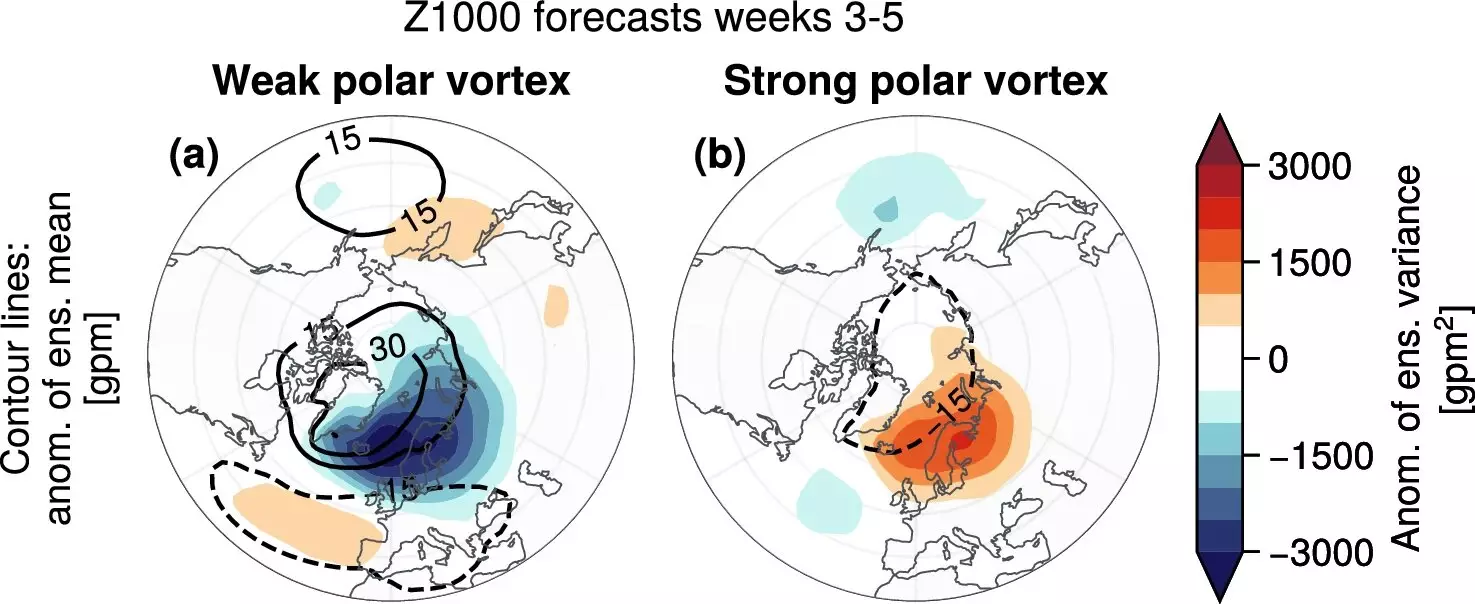Long-range weather forecasting has always been a challenging task due to the chaotic nature of weather systems. However, recent research conducted by LMU has revealed that events in the stratosphere can have a significant impact on long-range weather forecasts, particularly in Northern Europe. This discovery has implications for various sectors such as agriculture, energy production, and public health.
Researchers at LMU have found that the state of the circulation in the polar stratosphere during Northern winter can provide valuable information for improved long-range weather forecasts. When the polar vortex weakens or breaks down, it can lead to a southward shift in the North Atlantic jetstream, increasing the likelihood of cold spells over Eurasia. While vortex breakdowns are rare, they can have profound effects on weather patterns in the region.
A recent study published in Communications Earth & Environment by LMU meteorologists highlights the impact of weak polar vortex states on long-range weather forecasting in Northern Europe. The researchers found that weak polar vortex events are typically followed by a reduction in forecast uncertainty, with ensembles of forecasts showing a narrower range of possible weather conditions. This reduction in uncertainty can be attributed to the southward shift of the North Atlantic jetstream, which leads to less storm activity and increased predictability in the region.
Implications for Southern Europe
While forecast uncertainty decreases over Northern Europe after weak polar vortex events, the opposite is true for Southern Europe. The southward shift of winter storm tracks can result in increased uncertainty in weather forecasts for this region. This highlights the complex interplay between meteorological phenomena and how they can systematically reduce or increase forecast uncertainty over different geographical areas.
The impact of stratospheric events on long-range weather forecasting is an important area of study that can provide valuable insights for various sectors. By understanding how events in the stratosphere influence weather patterns on the ground, meteorologists can improve the accuracy of long-range forecasts and help stakeholders make better-informed decisions. Further research in this area will be crucial for advancing our understanding of weather prediction and mitigating the impact of extreme weather events.



Leave a Reply